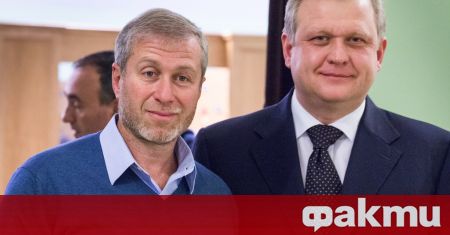A BBC investigation has uncovered new evidence of corruption deals that have amassed Roman Abramovich’s wealth.
The Chelsea owner made billions after buying an oil company from the Russian government at a fake auction in 1995. Abramovich paid about $ 250 million for Sibneft before selling it back to the Russian government for $ 13 billion in 2005.
His lawyers claim that there is no reason to claim that he has amassed a very significant fortune through crime.
The Russian billionaire was sanctioned by the UK government last week for his ties to Russian President Vladimir Putin. Abramovich’s assets have been frozen and he has been disqualified as director of the Chelsea Football Club. The Russian billionaire has already admitted in court in the United Kingdom that he made corrupt payments to help launch a deal with Sibneft.
He was tried in London by his former business associate Boris Berezovsky in 2012.
Abramovich won the case, but he described in court how Sibneft’s initial tender was set up in his favor and how he gave Berezovsky $ 10 million to pay a Kremlin official.
BBC Panorama has obtained a document believed to have been smuggled out of Russia.
The information was provided to the program by a confidential source who said it had been secretly copied from files kept on Abramovich by Russian law enforcement. The media did not confirm this, but inspections with other sources in Russia supported many of the details in the five-page document.
The document says the Russian government was defrauded of $ 2.7 billion in a deal with Sibneft, a claim backed by Russia’s 1997 parliamentary inquiry. The document also says Russian authorities wanted to accuse Abramovich of fraud.
It says: “Investigators from the Economic Crimes Unit have concluded that if Abramovich could be brought to justice, he would be charged with fraud by an organized crime group.”
The media followed the former chief prosecutor of Russia, who is investigating the deal in the 1990s.
From there they specify that Yuri Skuratov did not know about the secret document, but confirmed many of the details of the sale of Sibneft.
“Basically, it was a fraudulent scheme in which those involved in the privatization formed a criminal group that allowed Abramovich and Berezovsky to deceive the government and not pay the money that this company really cost,” Skuratov said.
The document also suggests that Abramovich was defended by former Russian President Boris Yeltsin.
It says law enforcement files on Abramovich have been moved to the Kremlin and that Skuratov’s investigation has been halted by the president.
“The whole thing was obviously political, because in my investigations I came very close to Boris Yeltsin’s family, including through this investigation into the privatization of Sibneft,” he said.
The document details another forged auction two years later, involving Russian oil company Slavneft. Abramovich partnered with another company to buy Slavneft, but a rival Chinese company planned to offer almost twice as much, the documents said.
The document says a member of the Chinese delegation was abducted when they arrived in Moscow for the auction.
“CNPC, a Chinese company, a very strong competitor, had to withdraw from the auction after one of its representatives was abducted on arrival at Moscow airport and released only after the company announced its withdrawal.”
The story of the abduction is supported by independent sources who did not know about the document.
Vladimir Milov was Russia’s Deputy Energy Minister during the sale of Slavneft. He did not comment on the abduction story, but said senior political figures had already decided that Abramovich’s partnership would win the tender. There is no suggestion that Abramovich knew anything about or had any role in the kidnapping plot. His lawyers told the BBC that the abduction allegation was “completely unfounded” and that he was “unaware of such an incident”.
Abramovich’s lawyers have denied allegations of corruption in the Slavneft and Sibneft deals, calling them untrue.
Rate:
☆
☆
☆
☆
☆
–
Grade 4.4 from 13 voice.
–
– –


